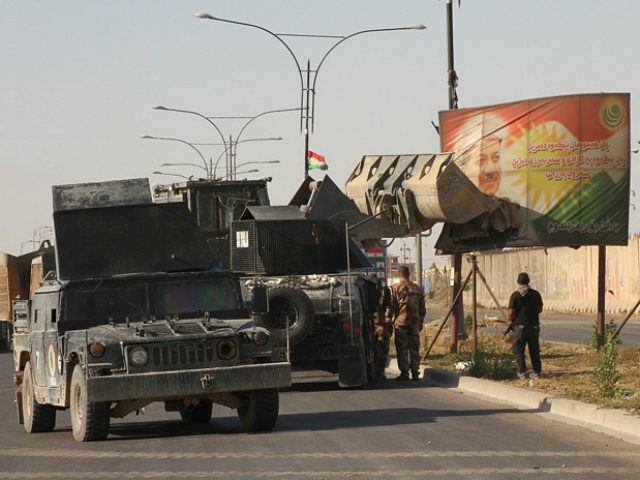The Yazidi minority in Iraq finds itself in an uncomfortable position as the Kurds consider acting on their successful independence referendum, while Iraqi troops move against Kurdish positions to make such a bid for independence impossible.
The Yazidis are the long-suffering group that was nearly exterminated by the Islamic State, at the height of ISIS atrocities in Iraq. According to Yazidi activists, it was the 74th attempt at genocide perpetrated against them since the 7th Century and probably came the closest to succeeding.
Kurdish forces helped to train the Yazidis to fight back against ISIS, including all-female units who were said to be particularly feared by the brutish Islamic State. The Yazidis are largely seen as ethnically Kurdish but are regarded as a distinct group due to their distinct cultural practices and unique religion.
Yazidis have been sharply divided on the question of Kurdish independence, mindful that they could well be drawn into an independent Kurdistan. So many Yazidis have been displaced by the war against the Islamic State that it is not clear where much of the population will settle down, although their ancestral home is in the Sinjar area of Iraq.
The Kurdish government has been widely seen as protective of the Yazidis, but not all Yazidis are fond of the Kurds. Some complained about poor treatment at refugee camps, accused the Kurdistan Regional Government of preventing them from returning home, and supported the Shiite-led Popular Mobilization Units of Iraq instead of Kurdish fighting forces. There is a good deal of resentment among the Yazidis of Sinjar (Shingal) for the failure of the Kurdish Peshmerga to protect them as promised when the Islamic State attacked in 2014.
Some Yazidis are simply apprehensive about what Kurdish independence could mean for their lives. Others accuse the Kurdish independence movement of cynically manipulating them or taking them for granted.
Other Yazidis are enthusiastic supporters of the KRG, its president Masoud Barzani, and the Kurdish drive for independence. The independence movement has specifically addressed the attempted genocide against the Yazidis, along with Saddam Hussein’s attempted genocide against the Kurds, as a reason independent Kurdistan is necessary. They seem as diverse in their political views as they are physically scattered by the flight from ISIS tyranny.
Iraqi military forces and the PMU militia have occupied some Yazidi towns during their fast-moving campaign against the Kurds, including Sinjar, a city of historic importance to the Yazidis. There were reports of sporadic fighting near Sinjar as Iraqi forces moved in, however, not inside the city itself because Yazidis belonging to both the Peshmerga and PMU reached an agreement to avoid bloodshed.
Kurdish forces have reportedly pulled out of the Sinjar area, leaving a Yazidi group called Lalesh that is affiliated with the PMU in control of the area.
The Washington Post notes that, although Iraqi Prime Minister Haider al-Abadi has portrayed his action against the Kurds as an effort to restore the pre-Islamic State borders of the Kurdistan Regional Government, Sinjar is one of several areas that were in Kurdish hands long before the Kurds joined forces with Baghdad to drive ISIS from its Iraqi stronghold of Mosul. According to the Post report, Shiite militia forces loyal to the Baghdad government have entered Sinjar along with the Yazidi units.
“In a triumphant news conference two years ago after Kurdish forces took Sinjar from Islamic State militants, Barzani vowed that no flag other than the Kurdish one would fly over the town,” the Post writes, quoting the KRG president. “But the Iraqi flag went up in Sinjar on Tuesday for the first time since 2003, residents said.”
“I don’t care who holds our city, whether it’s peshmerga or Iraqis. What we care about is living in peace and to be protected. Everybody claims they care about Sinjar when, in fact, no one did anything for Sinjar. We are just a card they use when they need and then can throw away,” an exasperated Sinjar resident told the Washington Post in a telephone interview.

COMMENTS
Please let us know if you're having issues with commenting.